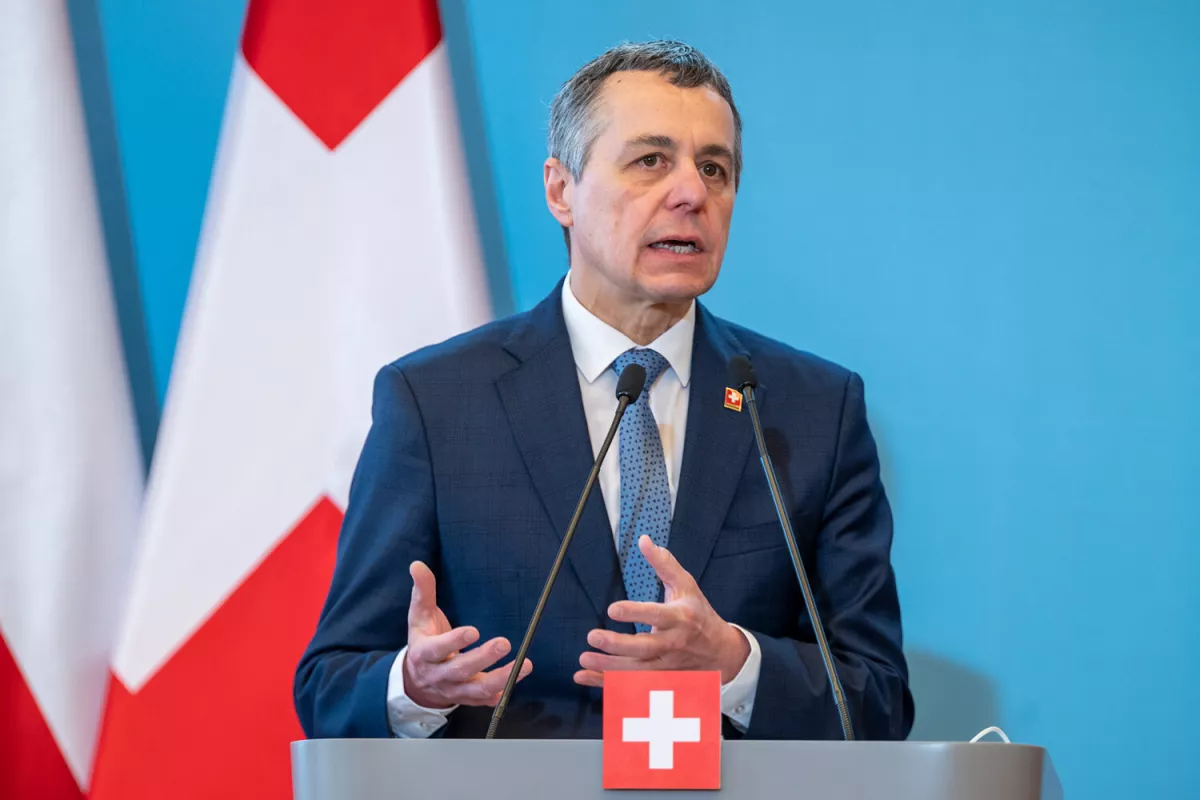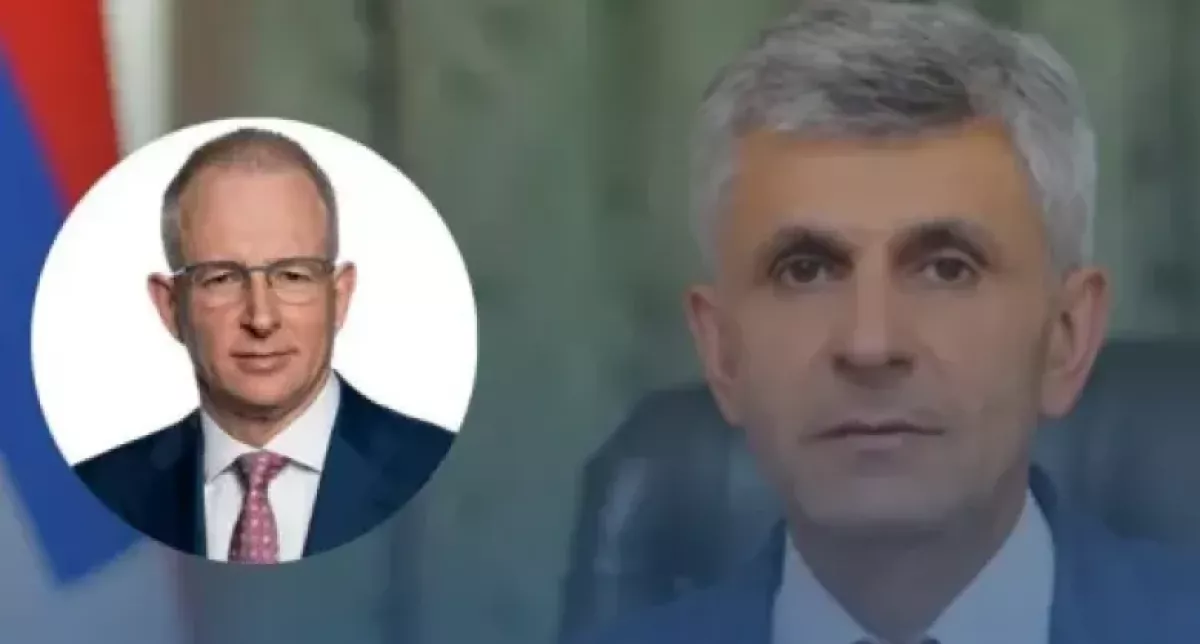Australia ignoring aboriginal rights while embracing Armenian war criminals Double standards Down Under
The Swiss Foreign Minister Ignazio Cassis has rejected the initiative of several local MPs to convene an international conference on Karabakh, stating that all issues should be resolved directly between Armenia and Azerbaijan. With this, the Swiss Ministry of Foreign Affairs effectively put an end to the resolution of the lower house of parliament, which a few days ago called on the Swiss government to organize an international peace forum to facilitate "an open dialogue between Azerbaijan and representatives of the Nagorno-Karabakh Armenians, conducted under international supervision or in the presence of internationally relevant actors, in order to negotiate the safe and collective return of the…Armenian population."
Overall, this approach by certain Swiss MPs is not surprising, given that the author of the resolution's text is Erich Vontobel, who, back in September, along with fifteen other parliamentarians, initiated a written request to the Swiss executive authorities "on the return of the Armenians of Artsakh and the restoration of their rights." In response, Azerbaijani diaspora organizations in Switzerland sent a statement to the MPs of this supposedly always-neutral country, clarifying that anti-Azerbaijani insinuations do not reflect historical realities and urging the parliamentarians to demonstrate a responsible approach, avoiding manipulations.

For the "hotheads" in Armenia, let us provide some context: while 96 legislators voted in favour of the current resolution titled "Nagorno-Karabakh: Peace Conference," an equal number of MPs either opposed or abstained: 80 voted against, and 16 abstained. This gives the Armenian society something to ponder.
Incidentally, back in 2012, several Swiss MPs from the parliamentary friendship group "Switzerland-Armenia" violated Azerbaijani laws by visiting the then-occupied Karabakh, where they met with the war criminal Bako Sahakyan, who at the time styled himself as one of the "leaders" of the unrecognized, paper-thin "NKR." One of the group's co-chairs, Dominique de Buman, stated that he was not afraid of being blacklisted by Azerbaijan, asserting that MPs “have the right to visit various countries, and we are acting solely within our powers."
Moving on, we find ourselves in Australia, where, in almost "Swiss-like" fashion, Member of the House of Representatives Paul Fletcher called on Baku to "immediately release" the war criminal Davit Ishkhanyan, who once styled himself as the "speaker" of a puppet structure in the occupied Karabakh region. The Australian MP justified his appeal by citing the "pleasure" he derived from a meeting with Ishkhanyan in 2019, which took place in the federal parliament alongside a dozen of his parliamentary colleagues. Fletcher expressed "particular concern" over Ishkhanyan’s detention by Azerbaijan's State Security Service. Furthermore, he went on to remark that "Australia is watching Azerbaijan."

In light of these developments, let us first recall that in August 2019, Australia announced the establishment of a "circle of friendship with Artsakh," which included members of the Federal Parliament, senators, ministers, the Premier of New South Wales, and the speakers of the state’s upper and lower parliamentary chambers. It was during that August that Ishkhanyan visited Australia, although Fletcher inexplicably refers to September of that year.
Moreover, on July 30, 2019, the Federal Parliament hosted a reception for several Karabakh separatists. Notably, in the same month, the Australian suburb of Ryde, located on the outskirts of Sydney, "established friendly relations" with what was then the stronghold of Armenian separatists—referred to by them as "Stepanakert"—a city that, as the historically Azerbaijani town of Khankendi, now proudly flies the Azerbaijani flag.
One might ask: did certain MPs in Switzerland and Australia not find it shameful to violate the norms and principles of international law by illegally visiting Azerbaijan's occupied territories and hosting war criminals in their own countries? Shouldn’t they, of all people, set an example of respecting these principles? While the answer to this question seems obvious, let us shift focus to another striking point.
Why have certain Australian parliamentarians been so eager to embrace Karabakh war criminals, yet failed to advocate for the rights of their own country’s Indigenous population to have an advisory body in the federal parliament? This glaring contradiction is especially notable given the recent events of 2023, when less than 40% of Australians supported a referendum to grant this basic right to Indigenous Australians. As of 2021, Indigenous people accounted for less than 4% of the population, according to the Australian Bureau of Statistics, and remain one of the most disadvantaged groups in Australian society.
It seems, however, that the fate of Australia’s Indigenous people is less concerning to some Australian MPs than issues like the legalization of same-sex marriage (achieved in 2017) or the recognition of Karabakh separatists—war criminals—as “legitimate” entities, in blatant violation of international law.
Using Paul Fletcher’s own words, as referenced earlier: Azerbaijan is watching Australia. Just as the Baku Initiative Group (BIG) remains attentive to the rights of those oppressed and harmed by French colonizers, Azerbaijan is closely observing. Canberra likely took note of President Ilham Aliyev’s recent remarks, emphasizing that for Baku, it is only natural to care deeply for peoples who are denied their rights. And with that, we leave the matter open for reflection.








